Some men are unaware or ignore subtle and obvious signs of testosterone deficiency. Here are the signs you need hormone replacement therapy!
Continue readingHow Environmental Toxins Can Crush Your Testosterone
What Is Low Testosterone?
Are These Medications Killing Your Sex Life?
Happy Men’s Health Month!
What’s The Deal With Weight Gain And Low Testosterone?

If you’re struggling to see the results you want in your weight loss program, you may be dealing with a testosterone imbalance.
Have you been noticing that the number on the scale keeps increasing recently?
Is your midsection growing at a faster rate than the rest of your body?
Are you struggling to lose those pesky pounds?
Are you dieting and exercising but still not seeing the results you want?
Weight gain is a primary symptom of low testosterone.
If you have low testosterone, you’re more likely to have increased body fat.
And if you have increased body fat, you’re more likely to suffer from low testosterone.
This becomes a vicious cycle that can cause weight gain and prevent weight loss—no matter how hard you diet and exercise. This cycle can also impact other areas of your health, including stress, libido, fertility, energy, and risk for disease.
Let’s go through the basics of testosterone, how T is related to weight, and what you can do about breaking the cycle this week.

What is testosterone?
Testosterone is the “male sex hormone.” It’s the primary hormone that makes a male “manly.” Testosterone is necessary for the initial development of the testes and prostate as well as the ongoing production of sperm and semen.
Along with its sexual function, testosterone has other important purposes in the body as well. It plays a role in everything from libido to muscle development and brain health. Check out these 10 crazy and surprising effects of testosterone here.
A number of factors can cause low testosterone. This includes lifestyle, diet, and exercise. Age also plays a role, as testosterone levels naturally decline with age especially after age 50.
Because testosterone is so critical for sexual and overall health, low levels of testosterone can cause serious health concerns. Symptoms of low testosterone include:
- Weight gain
- Minimized libido (sex drive)
- Low fertility
- Loss of muscle mass
- Weak bones
- Lowered energy
- Brain fog
- Moodiness
- Depression
- Anxiety
- Low self-esteem
- Less body hair
In this post, we’re going to focus on the first symptom: weight gain.

Testosterone has a direct impact on your weight. Higher testosterone means less fat and more muscle. Lower testosterone means more fat and less muscle.
That means that testosterone not only impacts the way we look and feel, but it’s also an important aspect of overall health. Testosterone affects our weight, and weight is a proven indicator of future wellness. Being overweight is directly linked to a number of health problems, including high cholesterol, high blood sugar, type 2 diabetes, heart disease, stroke, and more.
So how does this work?
What is the relationship between weight gain and low testosterone?
A number of studies have proven that weight and testosterone are intimately linked.
Research has shown that low testosterone can cause weight gain. Thus, improving testosterone levels can help with weight loss. A 2013 study found that men taking testosterone supplements saw weight loss as a side effect. Over five years, they each lost an average of 36 pounds and 3.5 inches off the waist. Similar results were iterated in a 2016 study as well.The reverse is also true. Obesity or holding extra weight can actually reduce testosterone levels. One study found that 75% of men who qualified as obese also had hypogonadism, which is when the body produces lower amounts of testosterone.
Losing weight, then, actually shows an increase in testosterone levels—even without testosterone replacement therapy.
So where does this link between weight gain and testosterone come from?
Below are the five primary ways testosterone impacts your weight.
Testosterone plays a role in metabolism.

Testosterone plays a key role in your metabolism, which is the process that turns your carbs, fats, and proteins into energy and fuel.
This is likely because testosterone interacts with insulin and glucose. High levels of testosterone can “eat up” extra glucose. Otherwise, that glucose would be stored as fat cells in the body.
Higher levels of testosterone eat up more of your free-floating sugar to prevent weight gain.
In fact, one study found that men undergoing testosterone treatment showed a significant increase in basal metabolic rate, which is associated with a decrease in lean body mass.
In opposition, fat cells actually metabolize testosterone at a fast rate. The more fat you carry around, the faster you burn through your free testosterone.
So low testosterone causes weight gain… and then that extra fat actually minimizes your free testosterone even more.
Testosterone builds muscle.
Muscle is an important part of weight loss. Your body has to burn up its fat stores in order to build the muscle that you’re creating. Plus, muscle actually burns more calories throughout the day than fatty tissue does.
Having more muscle on your body puts you in a positive cycle of maintained weight.
And testosterone is a key hormone in the process of muscle construction and protein synthesis.

Studies show that testosterone levels increase muscle mass by boosting the body’s ability to produce protein.
This means that higher testosterone can help increase muscle, which minimizes fat storage.
Testosterone also boosts HGH, the human growth hormone. This hormone is used to build or “grow” your muscle.
Studies have shown that men with low testosterone are more likely to have less muscle mass than men with normal T levels. Similarly, men with less muscle mass are at a greater risk for low testosterone levels.
If you want healthy and attractive muscles, you need testosterone.

Testosterone regulates fat-storing estrogen.
Body fat contains an enzyme called aromatase. Aromatase converts testosterone to estradiol, which is a type of estrogen. Aromatase turns T into estrogen, which increases estrogen levels. This then signals the endocrine system to slow the production of testosterone.
Basically, fat tissue creates estrogen. Estrogen stops the production of testosterone.
Thus, reducing fat tissue helps minimize the extra estrogen caused by stored belly fat.
The reverse is also true. When testosterone is low, it increases the production of estrogen.
Estrogen then signals your body to store fat. That’s why women tend to have “softer” features and extra weight, especially around their midsection. The goal of this in females is to store fat so women have extra reserves in case they need to care for a fetus or baby.
Estrogen works the same way in a male. It tells your body to hold on to your fat “in case of emergency.” But in most cases, you’re not all that interested in holding on to extra fat tissue in case the apocalypse hits.

Body fat increases estrogen and lowers T.
And low T increases body fat storage.
Talk about a cycle of weight gain!
Thus, boosting testosterone levels can help minimize fat-storing estrogen. And losing weight can help reduce estradiol, allowing for more free-floating testosterone.
Find out more about the relationship between testosterone and estrogen, especially with regards to the estrogen in your food.
Testosterone reduces cortisol levels.
Cortisol, the “stress hormone,” is proven to increase weight gain. You’ve likely found that during stressful periods of your life, you hold on to a little more poundage than you typically would.
This is because cortisol is released in response to stress and low blood sugar. The goal of cortisol is to suppress inflammation and raise blood sugar levels. This increase in blood sugar actually promotes fat storage, especially around the abdomen.
Cortisol also causes gluconeogenesis, which is when your body transforms its protein reserves into glucose. This basically transforms the protein within your muscles into fatty tissue. You’ll start losing muscle mass and gaining fat—which links back to #2 on this list.
Testosterone and cortisol have an inverse relationship. High cortisol levels cause low levels of testosterone, and high testosterone levels cause low levels of cortisol. Low testosterone allows cortisol to run free, causing an increase in fat storage and gluconeogenesis.

Raising your testosterone levels reduces cortisol, which then minimizes the risk of extra fat storage.
You want high T and low cortisol for optimal health.
Testosterone impacts energy and stamina.
Low energy is a symptom of low testosterone. Fatigue and sluggishness are common indicators of a hormonal imbalance.
Energy is an important part of losing weight. Men with low testosterone often find they don’t have the energy or motivation to workout. When they do exercise, their stamina is so low that the workout isn’t as productive or effective as it could be.
Plus, low energy tends to lead to a more stagnant lifestyle. This means fewer calories burned throughout the day—often accompanied by an increase in the consumption of calories.
This creates a discouraging effect for men looking to lose weight. They can’t bring themselves to the gym no matter how much they want to lose the weight.
Stagnation causes a quick uptick in poundage.
How can you lose weight and increase testosterone?
Because the relationship between weight and testosterone goes both ways, it can be challenging to answer the chicken or the egg question:
Am I gaining weight because of low testosterone or do I have low testosterone because I’m gaining weight?
But the answer to this question ultimately doesn’t matter.
You don’t want weight gain or low testosterone.
So how can you break the cycle?
You have to start by boosting your testosterone.
Whether your weight gain was the cause or effect of low testosterone, losing weight starts by increasing testosterone.
Click here to discover the 13 ways to increase testosterone naturally. You’ll also want to learn about the 7 testosterone boosting myths, so you can make sure your training regimen is on the right track.
Testosterone replacement therapy might be a solution for some men, but it can also have a number of associated risks. There are other healthier ways to try increasing testosterone while losing fat.

Below are a few of the best ways to increase testosterone while losing weight—kill two birds with one stone!
- Lift weights. Resistance exercise builds muscle faster than cardio. As discussed, lean muscle burns fat faster and triggers testosterone production.
- Use high-intensity interval training. Studies show that interval training boosts testosterone better than steady endurance exercise. Interval workouts also tap into fat reserves to eat away at the pounds you’re struggling to lose.
- Stress less. The more you stress, the more cortisol you have in your body. More cortisol means less testosterone. Minimizing your stress is crucial to maintaining a healthy hormone balance. I recommend yoga, because it helps reduce stress while growing muscle mass.
- Maintain a consistent routine. You need to be exercising regularly in order to have a long-term impact on your testosterone levels. The most effective routines include both cardio and weightlifting to boost muscle mass and burn fat simultaneously.
- Don’t shy away from fats. Healthy fats are actually an important part of testosterone production. Study after study shows that low-fat, high-protein diets kill testosterone, minimize muscle mass, and increase fat storage. A balance of fats, carbs, and protein is critical for hormonal health and balance.
Learn more about the Carnivore Diet and Fat Loss here.
Learn other testosterone boosting methods here.
Conclusion
If you’re struggling to get rid of those pesky pounds, low testosterone may have something to do with it. The intimate relationship between testosterone and weight gain can create a vicious cycle that can be hard to break.
But if you boost your testosterone, you’ll increase muscle mass and strength, encourage weight loss, improve energy and stamina… and enrich your overall health and vitality!
I have the ultimate solution to breaking the cycle.
Because I’ve done it myself.
During a routine physical exam, I found out I was 25 pounds overweight. My cholesterol was 245. My doctor showed me my life expectancy chart based on my medical history and health… and it scared the crap out of me.
So I decided to make a change.
I decided to break the cycle.
And I’ve been helping men lose weight and boost testosterone ever since.
Now it’s your turn.
Ready to take the next steps?
Schedule a Call
**************************
 In Male 2.0™, Dr. Tracy Gapin has turned everything we once thought we knew about men’s health and performance upside down. The old model of how to be “a man” is broken. A man who works himself to death. Unfortunately, a man who tries to NOT get sick but isn’t really healthy either. And a man who takes a pill for every ill but is never really cured. That was Male 1.0. Now, imagine being THE MAN ─ owning your performance in the bedroom, the weight room, and the boardroom. Living a fully optimized life. Becoming limitless. This is Male 2.0!
In Male 2.0™, Dr. Tracy Gapin has turned everything we once thought we knew about men’s health and performance upside down. The old model of how to be “a man” is broken. A man who works himself to death. Unfortunately, a man who tries to NOT get sick but isn’t really healthy either. And a man who takes a pill for every ill but is never really cured. That was Male 1.0. Now, imagine being THE MAN ─ owning your performance in the bedroom, the weight room, and the boardroom. Living a fully optimized life. Becoming limitless. This is Male 2.0!
Tracy Gapin, MD, FACS is a board-certified Urologist, world renowned Men’s Health & Performance Expert, Author, and Professional Speaker. Using state-of-the-art biometric monitoring, nutrition and lifestyle intervention, Dr. Gapin coaches Fortune 500 executives and evolutionary leaders of business, sports medicine, and high performance. He specializes in cutting-edge precision medicine with an emphasis on epigenetics, providing men with a personalized path to optimizing health & performance. www.GapinInstitute.com
Want more tips to optimize your health? Listen to the latest podcasts. Click HERE
Testosterone: 10 Crazy And Surprising Effects
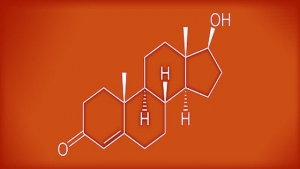
Testosterone is a necessary hormone involved in health, reproduction, and behavior. Men and women both require testosterone (T) for sex drive, bone strength, muscle maintenance, and more. T levels drastically impact physical, emotional, and mental health.
So what are the effects of testosterone?
Below you’ll find the 10 ways the big T impacts your health, wellness, and even your psychology and behavior.
1. Testosterone increases sex drive
The most common effect of T is sex drive. Testosterone is the key hormone in controlling libido in both men and women. Men produce nearly ten times as much testosterone as women, which is why men generally have a stronger sex drive than women.
That’s also why low libido and low levels T often go hand-in-hand. If you aren’t interested in having sex like you used to, low testosterone levels could be to blame.

But having a strong sex drive and high T levels is actually a predictor of good health.
Our bodies are programmed to have sex. Our evolutionary biology tells us to have sex in order to procreate (to keep the human race alive). You’ve likely heard of the biological theory that men must “spread their seed.”
High levels of testosterone create that hormonal urge to “sow your wild seeds.”
So sex drive is an essential part of our biological processes.
But it’s not the most essential part. Your body first needs to survive in order for you to procreate. Thus, your body will take care of survival before focusing on sex.
Thus, if you don’t have a strong sex drive, it could be because your body is in a state of “survival mode.” Your body is focused on other, more essential processes before it can think about sex.
If you have a disease or illness, your body will shut down the baby-making process to first fend off the sickness. For example, think about the last time you had the flu. You likely had a lowered sex drive because your body was preoccupied with getting healthy.
So what does this all mean?
A low sex drive could be an indicator of low testosterone or another underlying health problem.
To raise your sex drive, you need to boost your testosterone. If you increase your T levels, you’ll feel more sexual and last longer in bed.
Keep in mind that “sex drive” is relative. Your low sex drive may be someone else’s high sex drive. If you feel you are less interested in sex than usual, you should get your levels checked.
2. Testosterone helps you attract women
Testosterone may actually make you more attractive to women (which can help quench that extensive sex drive).
This is partially because of the masculine-feminine dynamic. Estrogen gives women their feminine qualities, while testosterone causes more masculine qualities. An estrogenic woman is often attracted to a man with high T levels and vice versa. This makes for prime reproduction. In this case, opposites do attract.

However, the reason for this attraction actually goes beyond the masculine-feminine relationship. Researchers at Wayne State University studied two groups of men competing for the attention of an attractive woman. They found that men with higher levels of testosterone were more likely to “win the girl.” This was because men with higher T levels were more assertive, controlled the conversation, had more confidence and demonstrated a stronger self-image.
Basically, it can give you the confidence and suaveness you need to talk to a woman in a bar. Low T leads to low confidence and less luck with the ladies.
3. Testosterone makes you more competitive

Studies show that testosterone levels rise when partaking in any sort of competition. This isn’t just a slight rise in T levels. Competition causes such a spike in testosterone that it can actually result in aggressive and antisocial behaviors.
Have you ever met a guy who gets too intense about boys’ night poker? He may just have higher levels of competition-related testosterone!
Testosterone levels also increase after winning and decrease after losing. That may be an explanation for the gloating winner and a sore loser.
Interestingly, one study found that even watching competition impacts testosterone levels. Researchers compared men watching the Brazil-Italy World Cup match. After Brazil won, they found that Brazil fans’ testosterone levels increased and Italy fans’ levels fell.
4. Testosterone makes you more honest.
A 2012 study looked at how T impacts competition and honesty. They found something surprising—testosterone actually makes you more honest, even when in a competitive atmosphere.

They gave 46 men a testosterone gel and 45 a placebo. All participants rolled a dice in private and reported their numbers. They were told they would receive money based on their roll, with a higher roll paying out more cash.
The researchers found that men who received a testosterone gel actually self-reported the numbers more honestly.
They attributed this honesty to self-image. Testosterone increases one’s personal sense of pride. Cheating or lying could damage that self-image. Participants with higher testosterone were less willing to risk damaging their pride or to appear as a liar or cheat.
5. Testosterone makes you less fiscally responsible
In the previous study, men were more likely to value their pride over money. But the two may be linked.
Testosterone also makes men more interested in financial gain. It’s possible that testosterone makes men more interested in money because money contributes to a greater sense of pride.
In fact, this financial desire actually makes those with high testosterone levels more willing to take financial risks. One study found that men with higher levels had a greater willingness to invest more money and make riskier investment decisions. This might be a source of jealousy for those who have never quite managed to pluck up the courage to make their investment dreams come true, but there are plenty of resources available to help you trust in your own judgement, such as this Facebook page for Perpetual Assets which offers advice to those who lack confidence in investment.
6. Testosterone can make you more money

The reverse is true as well. Financial gain can actually increase your T levels.
One study looked at stock traders’ testosterone levels. Researchers found that the traders’ T levels increased on days where they made an above-average profit on their trades.
This implies that financial gain raises T levels. This may have something to do with a financial gain equating to a competitive win and a boost in self-image, as discussed above.
Interestingly, though, the reverse may be true as well. Higher testosterone may also make you more money.
The study also found that men with higher T levels in the morning had above average profits in the afternoon. They were more likely to make more money on days they had higher testosterone levels.
The reason for this isn’t completely clear. It’s likely because testosterone makes you more competitive and willing to take risks, both of which are important traits for stock traders.
Nevertheless, this can be risky business. After making a good trade, testosterone levels rise. But this testosterone can cause men to make riskier financial decisions. These hormones create a “gambling feedback”: a good trade occurs, testosterone rises, and testosterone creates poorer decision-making skills.
Basically, testosterone is more likely to make you willing to “risk it all”—which can make you lose it all or win it all.
7. Testosterone makes you think you’re right
“No honey, I’m right because I have more testosterone than you.”
That’s not necessarily the best way to win an argument—but it’s how testosterone affects the brain. A study of 243 men found that higher levels lead to greater confidence in answers—even when incorrect.
The men were either given a testosterone gel or placebo and then they were instructed to do a cognitive reflection test. Researchers found that those men given testosterone answered 20% fewer questions correctly—but were more likely to be convinced they were right. These men also gave their incorrect answers quicker and their correct answers slower than the placebo group.

This implies that T has two effects. It slows down cognitive processing and increases confidence levels.
If you have high testosterone, you’re more likely to think you’re right. If you have low T, you may have greater uncertainty and anxiety with decision-making skills.
8. Testosterone makes you less emotional
Women are generally more emotional and empathetic than men—and that may be because of their high levels of estrogen. Testosterone, on the other hand, may reduce emotional behaviors and processing.
Research at Utrecht University looked at how testosterone impacted the brain. They showed female participants a series of photographs of eyes, and they were asked to identify the emotion. Researchers found that women given testosterone took longer to identify emotions and made more mistakes than those not given the hormone.
In fact, they found that even just one dose of the hormone was enough to alter the connections between the “emotion processing” parts of the brain.
Elevated levels minimized the ability of the brain to process and relate to emotional cues.
9. Testosterone makes you immortal
No, it doesn’t actually make you immortal. But it may help you live longer. Strong T levels improve health to help avoid serious health concerns and early death. For example, testosterone can help you lose weight, which minimizes obesity, type 2 diabetes, and heart disease. Low testosterone, on the other hand, is linked to weight gain, loss of muscle mass, loss of bone density, heart disease, and even early death.

Testosterone is especially necessary to regulate insulin and glucose. Low T levels create an imbalance in glucose and insulin, which can lead to the accumulation of fat tissue. This fat increases estrogen and decreases testosterone, creating a negative cycle of low T and weight gain. Testosterone also plays an important role in combating metabolic syndrome.
Low T is also linked to chronic inflammation. This body-wide inflammation weakens the immune system and may be linked to asthma, allergies, diabetes, respiratory disease, Parkinson’s, ADD, Lupus, MS, migraines, and more. Raising testosterone can help minimize harmful inflammation.
Healthy levels of testosterone may:
- Fight depression
- Increase muscle mass
- Strengthen heart
- Build bones
- Improve cognitive ability
- Decrease the chance of Alzheimer’s disease
Plus, testosterone boosts libido and sexual function. And more sex is linked to a longer lifespan! (This is likely because sex is a great form of physical exercise while helping to minimize stress and cortisol levels.)
10. Testosterone isn’t just a male hormone
Men have ten times more testosterone than women, but it’s an important hormone for females as well. Testosterone has the same health benefits for women as it does for men, like weight loss, improved bone density, and greater sex life.
In fact, women with higher T levels have more positive sexual experiences and are more likely to achieve orgasm. Too much testosterone, though, can become a health concern for women. It can lead to “manly” features like deeper voice, hair growth on body and face, and hair loss from the head.
Did you know that kissing actually transfers small amounts of T from the man to the woman? This helps excite the woman in preparation for sex. So, yes, kissing is an important part of foreplay, helping to increase your partner’s sex drive!
Bottom Line
Testosterone plays an important role in overall health and wellness—both inside and outside the bedroom. It’s linked to libido, muscle mass, mental clarity, cognitive ability, energy levels, and more.
Do you want to boost your testosterone andimprove your health? Check out our Male 90X program.
Click below to get started on boosting your T levels for ULTIMATE health and MAXIMUM potential!
How To Last Longer In Bed Right Now
13 Estrogenic Foods And Products To Avoid For Your Health

Recent research suggests that obesity, type 2 diabetes, certain cancers, and mood disorders could be linked to estrogen dominance. High levels of estrogen squashes your testosterone, which can lead to poor sexual function, lowered libido, fatigue, loss of muscle mass, brain fog, and other health concerns.
Both men and women need estrogen for growth and development, but too much estrogen can damage the body. More and more studies are coming out that show our foods and environment are filled with synthetic estrogens. These artificial hormones disrupt the natural endocrine production and create an unhealthy balance of high estrogen and low testosterone.
If you want to maintain your health and reduce your risk of hormone-related concerns, you need to watch your estrogen intake in your foods and environment.
What is estrogen?
Estrogen is a naturally occurring hormone in both men and women. It’s usually considered a “female” hormone, because it gives females their feminine characteristics, including the regulation of the menstrual cycle. But men also need estrogen for growth and development.
Men need to be highly aware of their estrogen levels. If these levels are even slightly above normal, it can impact testosterone and insulin. Low levels of estrogen can predispose men to osteoporosis, brain changes (like memory loss), and unbalanced hormones. When estrogen levels are off, the other hormones unbalance in tandem, creating a body-wide endocrine disaster. This hormone imbalance can create a number of health concerns, including low testosterone.
What are the health concerns of excess estrogen?
Excess estrogen in men is linked to a number of serious health concerns that can impact short-term and long-term health.
Estrogen dominance is a toxic condition. Estrogen is the hormone that promotes growth and development. Too much estrogen is linked to the growth and spread of cancerous tumors. Researchers have especially studied the connection between excess estrogen and breast cancer in both men and women. Excess estrogen may also increase the risk for testicular and prostatic cancers.
Read: Does My Husband Have Prostate Cancer?

High levels of estrogen are also linked to weight gain. Estrogen likes to “hold on” to fat cells, which can make weight loss a challenge. Excess estrogen also upsets insulin levels. Insulin metabolizes sugar; when insulin is out of whack, it doesn’t fully process these sugars. If insulin can’t remove sugar from the bloodstream, the body starts storing that sugar as fat. This creates weight gain and eventually can lead to insulin resistance and type 2 diabetes.
Reducing estrogen levels and increasing testosterone levels can increase muscle mass and decrease fat mass.
Excess estrogen can also cause thyroid concerns and depress the immune system. Other health concerns from this hormone imbalance include:
- Sexual dysfunction
- Lowered sperm counts
- Infertility
- Chronic fatigue
- Depression and mood disorders
- Liver fatigue (liver works to reduce estrogen)
How do you know if you have excess estrogen?
In most cases, the symptoms of excess estrogen in men are similar to those of low testosterone (because high estrogen will suppress testosterone levels). These symptoms include:
- Low libido
- Thyroid imbalances
- Digestive issues
- Infertility
- Fatigue
- Depression
Where does excess estrogen come from?
It’s surprisingly common for men to have elevated estrogen levels, especially as testosterone declines with age. Combined with a high intake of estrogenic foods and an estrogen-filled environment, there is a perfect storm for high estrogen levels in men.
Xenoestrogens are chemical, synthetic compounds that mimic the structure of estrogen. Phytoestrogens are plant-based compounds that also show estrogenic properties. In the body, these xenoestrogens and phytoestrogens not only raise estrogen levels but also disrupt the endocrine system overall.
These synesthetic estrogens are popping up more and more in our environment. From the foods we consume to the chemicals in our household products, “estrogen” is everywhere—and it’s seeping into our systems and impacting our health.
Below you’ll find the 10 foods and 13 products to avoid in order to maintain a healthy hormone balance.
Soy

Soy contains isoflavones, which are a type of phytoestrogen (the plant compounds that mimic estrogen). Isoflavones interrupt the endocrine (hormone) system and depress thyroid function. The thyroid helps regulate the metabolism, control hormones, and more; this dysfunction can contribute to metabolic syndrome.
Along with the isoflavones in soy, most soy grown in the U.S. is genetically engineered with heavy herbicides. In fact, more than 94% of soy grown in the U.S. is GMO (genetically modified). Farmers inject hormones into the soy plants in order to artificially engineer their growth and development. The plants hold on to these hormone-xenoestrogens throughout their life cycles. You then directly consume these synthetic hormones when you consume the soy.
Moreover, studies have shown “extreme” levels of glyphospate in U.S. soy. Glyphosate has been proven to increase estrogenic activity. If you are worried about and want to reduce your glysophate intake but aren’t sure how to go about it, there are therapies that offer up a foot detox, it supposedly pulls out all of those nasty toxins in your system bringing them into the water and helping the detoxification of your body making it healthier. Always check with a medical professional first before trying any alternative therapies.
Meat & Dairy
Estrogenic hormones are used in excess on cow farms. The animals are fed synthetic estrogens to grow and stay healthy. This injected estrogen doesn’t disintegrate or go away, so you absorb these hormones when you consume any meat or dairy roducts. In this case, you really are what you eat.
Moreover, a number of farms force-feed their livestock soybeans, so you’re getting the estrogenic properties of the soybeans as well. They also spray the cow feed with pesticides that are considered estrogenic.

A number of farms use zeranol to enhance meat production. Zeranol is banned in the European Union, but it’s still prevalent in the U.S. Little is known about the negative health effects of zeranol, but several studies have shown a link between zeranol and early puberty and breast development in prepubescent boys and girls.
Dairy can be especially high in estrogen. In fact, nearly 80% of our dietary intake of estrogen comes from cow’s milk. Cows produce milk in order to feed to their young when pregnant or nursing, which is also when their estrogen levels are higher. In order to make milk, the cow needs to have high levels of estrogen; like other hormones, that estrogen goes into milk as well.
Injected hormones, pesticide estrogens, and the cow’s estrogen all leads to an excess of estrogen in meat and dairy that can drastically impact hormonal levels.
Wheat
The Scripps Research Institute found that zearalenone colonizes on corn, barley, wheat, and other grains. Zearalenone is a fungus that mimics estrogen in the body. This research found that zearalenone actually reduces the anti-estrogen effects of breast cancer treatment.
In order to get rid of naturally-occurring zearalenone, farmers spray the plants with hormone-filled herbicides. With wheat, you could be consuming either estrogenic zearalenone fungus or estrogenic herbicides. It’s a catch-22 that can drastically impact hormones levels.
Also, certain types of wheat can cause inflammation in the gut. Chronic inflammation is the primary—though silent—cause of a number of diseases, like cancer, heart disease, Alzheimer’s, depression, prostate disorders, and more.
Flaxseeds

Flaxseeds are a “super food” powerhouse filled with high fiber and omega-3s. However, flaxseeds are also high in phytoestrogens, drastically disrupting the endocrine system. 100g of flax has nearly 379,380 micrograms of estrogen. Watermelon, in comparison, has 2.9 micrograms of estrogen.
Flax also contains lignans, which have estrogenic properties. In some people, lingans may inhibit cancer cell growth, while in others it can stimulate cancer cells. It’s recommended to avoid lingans and flaxseeds when already diagnosed with cancer or going through cancer treatment, but research is inconclusive about lingans’ ability to lower cancer risk in a preventative way.
Despite its natural health benefits, flax is becoming more and more genetically modified as it grows in popularity. This genetic modification uses estrogenic hormones, like we discussed soy and dairy products. Thus, you can still eat this super food for all the great fiber and omega-3 fatty acids—but look for organic or pure flaxseeds and flaxseed oil.
Sugar
Sugar causes a spike in insulin. A spike in insulin lowers the level of sex hormone binding globulin (SHBG). SHBG binds to excess estrogen and testosterone to naturally maintain healthy hormone levels.
When SHBG is low, estrogen and testosterone increase because SHBG isn’t there to remove the excess hormones. Thus, when insulin spikes and creates a drop in SHBG, estrogen levels increase in tandem.
Read: 7 Foods Causing Your Erectile Dysfunction
Alcohol

Studies have shown heightened estrogen activity after consumption of beer, wine, and bourbon. Alcohol triggers a release of estrogen while depressing testosterone, which can create a short-term impact on hormones. With heavy drinking, this can create a chronic imbalance of hormones.
The hops in beer contain a phytoestrogen that especially disrupts natural hormones. This is one reason for the beer belly; too much beer is not only high in calories but it’s also high in estrogen, which “holds on” to belly fat. You might want to try the Dherbs detox water recipe to help eliminate any stubborn belly fat.
Processed foods
High fatty and carb foods increase bodily inflammation and raise estrogen levels. Be aware of processed foods like pastries, white bread, pretzels, fried foods, and other heavy carbs. You want to incorporate carbs and fats into a well-balanced diet—but opt for healthy carbs and fats like avocados, olive oil, and vegetables.
Read: Why You Should Never Eat A High-Protein Diet If You Want To Build Muscle
Food additives
A number of food additives and preservatives can also possess estrogenic effects. This includes 4-hexylrescorcinol, which is used to prevent the discoloration of shrimp, and propyl gallate often found in vegetable oil, meat products, chicken soup base, and chewing gum.
Legumes

Legumes are great for health, but they’re also high in estrogenic properties. Chickpeas, red beans, black-eyed peas, green peas, and split peas are all legumes. Black beans have nearly 5,330 micrograms of estrogen per 100g and hummus has 993 micrograms of estrogen per 100g. This won’t drastically impact your health, but be aware of your legume intake when trying to maintain healthy testosterone levels.
Non-organic produce
Most produce is sprayed with pesticides and herbicides that have high levels of estrogenic hormones. Even with a thorough washing, you’re still ingesting a number of these chemicals and synthetic hormones. Try to eat organic produce when possible. Even some “organic” products aren’t 100% hormone-free, so make sure you’re researching your food labels.
Note: Farmed salmon is also high in hormones and antibiotics. Eat wild-caught salmon when possible.
Plastic water bottles

Some plastic water bottles contain BPA (bisphenol A), which is a xenoestrogen. BPA is a synthetic compound that has been studied extensively for its effect on human safety and exposure. You’ll find BPA in plastic water bottles, canned foods and drinks, cash register receipts, and keg liners.
BPA in plastics can leech into the drinking water in the plastic bottle, where it’s then absorbed into your bloodstream. A 2013 study found that BPA disrupts the normal estrogenic receptors, potentially triggering obesity, type 2 diabetes, asthma, and cancer.
Another study found that estrogen activity was three times higher when water was packed in PET plastic bottles compared to glass.
Tap water
You can also find estrogen residue in your tap water supply. Some people blame this residue on people flushing birth control pills down the toilet, but this is only partially true. In most cases, the estrogen found in our tap water is due to a runoff of herbicides and pesticides from farms and agricultural plants. This can end up recirculating in the water supply, causing you to glug down water filled with synthetic estrogen.
Most filters can remove estrogen from your water supply.
Phthalates

Like BPA, phthalates interrupt estrogen receptors, creating an increase in free-floating estrogen. Research has linked phthalates with prostate cancer as well, possibly due to this estrogen dominance.
There are phthalates in synthetic scents (cologne), vinyl, laundry detergents, and plastic cling wrap. When possible, choose natural home products to avoid these estrogen-disrupting chemicals.
How to avoid extra estrogen
What can you do to avoid this intake of environmental and dietary estrogen? How can you keep your estrogen levels as consistent as possible?
- Avoid plastic bottles and plastic use. Never heat plastics in the dishwasher or microwave, as this can release the chemicals into the water or food.
- Don’t use nonstick cookware, which can have BTA.
- Avoid vinyl curtains and flooring.
- Choose fresh or frozen foods. Canned foods and drinks can contain BPA in the lining.
- Don’t accept receipts or store them in your purse or pockets.
- Use coconut, olive, or avocado oil in place of vegetable oil.
- Avoid dairy and soy. Instead, drink goat milk or nut milk (almond, cashew).
- Choose organic and grass-fed animal products. Choose organic produce when possible. Look at the label to see if it’s hormone-free and pesticide-free.
- Drink filtered water.
- Exercise often. This helps minimize body fat, which can keep your estrogen levels healthy. This is also important to conquer metabolic syndrome, overcome erectile dysfunction, normalize hormones, and improve overall health.
- Eat a lot of greens. Greens help pull out excess estrogen and detox your body. I recommend cabbage, broccoli, cauliflower, spinach, and Brussels sprouts.
(Some people recommend a dandelion and milk thistle detox, but the results can be varied and side effects are strong.)

The Bottom Line
If you want to maintain a healthy hormonal balance with strong testosterone levels, you need to avoid estrogen excess or dominance. But in today’s world, estrogen is everywhere: in our food, in our water, and even in our laundry detergents. The more you subject your body to these synthetic estrogens, the more unbalanced your own hormonal system will get.
Keep your hormones in check by avoiding the above 13 foods and products and consistently, regularly detoxing.
Want more advice on what you should and shouldn’t be eating or using?
Sign up for the Male 90X program. This genetic-based report and private consultation will give you the tools you need to achieve your maximum potential.

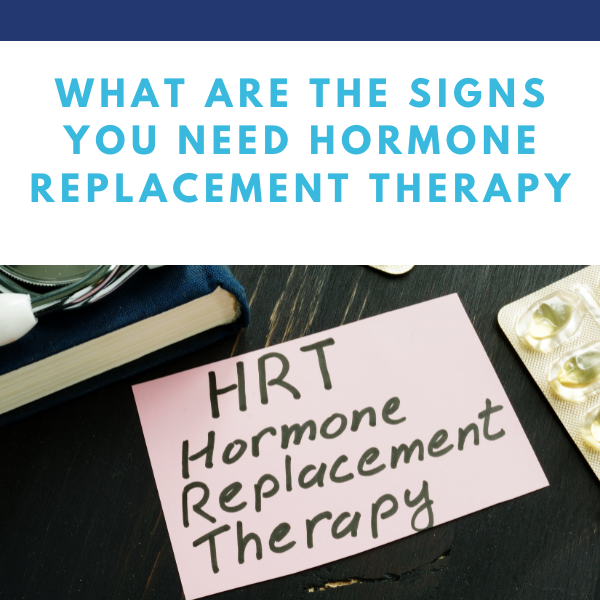
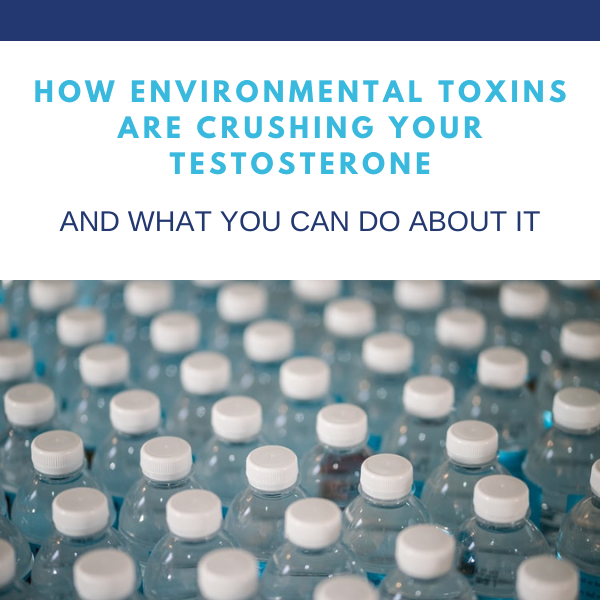

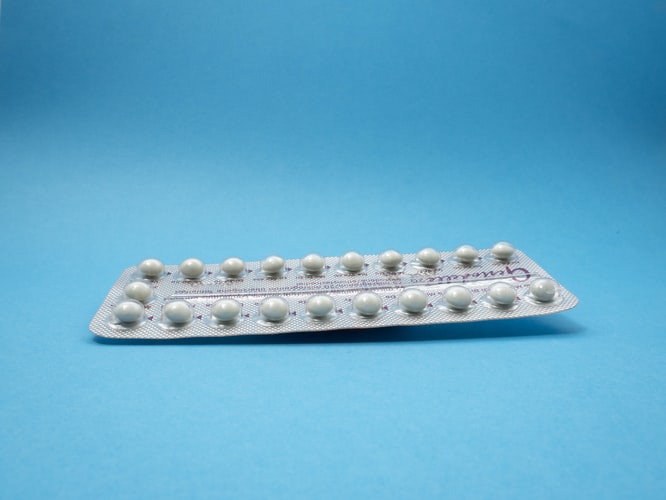









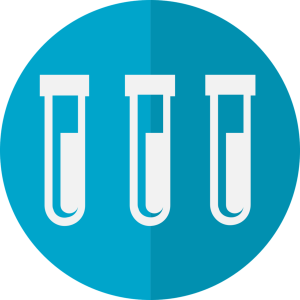

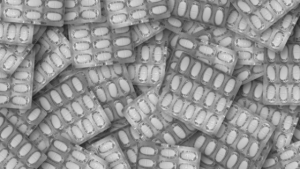









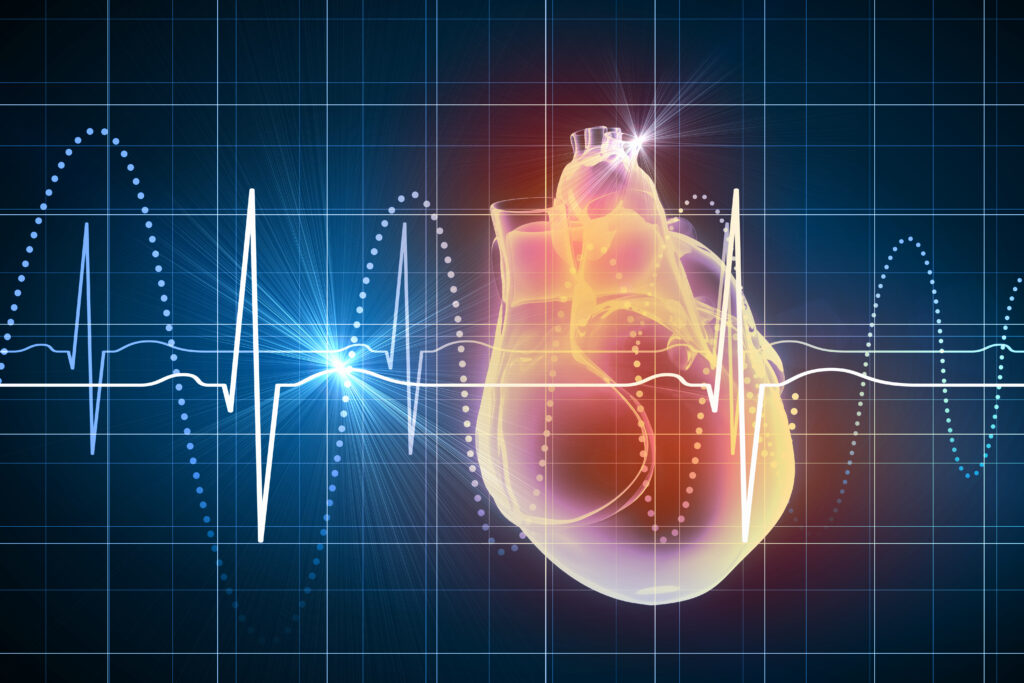







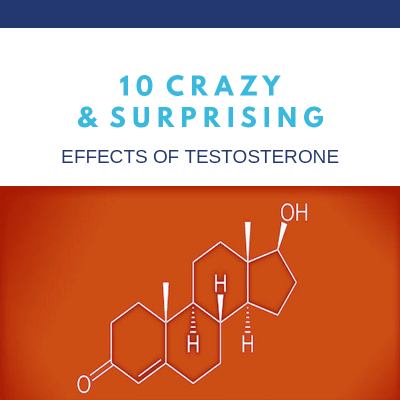












 legumes, beans, and some dairy. Often, when we think of a high-protein diet, we think of eggs, nuts, and lots of meat like chicken and beef.
legumes, beans, and some dairy. Often, when we think of a high-protein diet, we think of eggs, nuts, and lots of meat like chicken and beef. 

 restoring muscle glycogen storage for the fastest recovery process.
restoring muscle glycogen storage for the fastest recovery process.